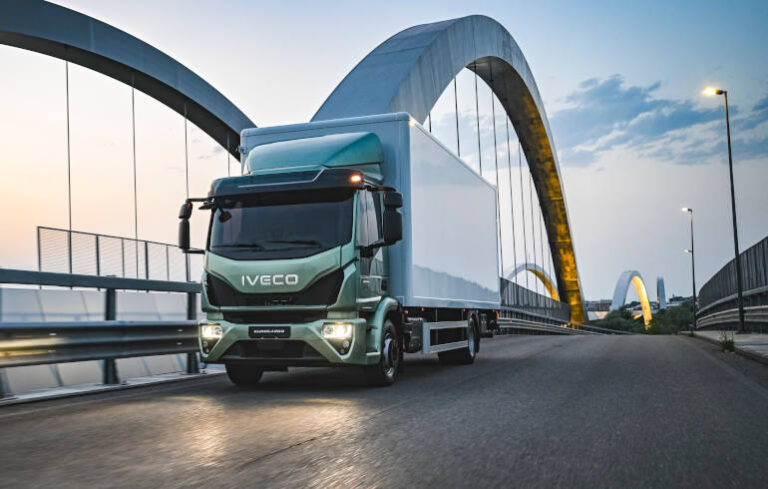The commercial vehicle sector is on the verge of a major global shake-up, with Tata Motors announcing plans to acquire Iveco Group in a €3.8 billion deal. While the transaction is still subject to regulatory approvals and the separation of Iveco’s defence business, the impact will be felt across markets – including Australia. For local Fleet Managers, Procurement Coordinators, and operators running mixed or specialist vehicle fleets, the move could reshape how and where they buy commercial vehicles in the years ahead.
The Deal at a Glance
Tata Motors – India’s largest commercial vehicle manufacturer – has agreed to acquire 100% of Iveco Group’s common shares through a voluntary cash offer of €14.10 per share, with an additional estimated dividend of €5.50–6.00 linked to the separation of Iveco’s defence business. The transaction is supported by both boards and by Exor, Iveco’s largest shareholder, which owns 27.06% of shares and 43.11% of voting rights.
Completion is expected in the first half of 2026, following regulatory approvals and the divestment of Iveco Defence Vehicles.
Why It Matters to Australian Fleet Buyers
1. More Muscle Behind the IVECO Brand
IVECO has a strong presence in Australia, particularly in the light, medium and heavy commercial vehicle segments, including daily cab chassis, Eurocargo, and Stralis prime movers. The brand has historically positioned itself as a European alternative to Japanese and US offerings, particularly with local manufacturing and fit-for-purpose models.
With Tata Motors behind it – a company that sells more than 500,000 commercial vehicles globally each year – Iveco may now have the backing needed to sharpen its competitiveness on pricing, supply chain, and innovation.
2. Potential for Expanded Product Range
Tata Motors brings a wide range of vehicles, including small pickups, light-duty trucks, and electric commercial vehicles. Iveco has been pushing forward with alternative fuels through FPT Industrial and IVECO eDaily in Europe.
According to Olof Persson, CEO of Iveco Group, “By joining forces with Tata Motors, we are unlocking new potential to further enhance our industrial capabilities, accelerate innovation in zero-emission transport, and expand our reach in key global markets.”
While there’s no confirmation of model sharing yet, there is clear potential for product platform integration – and eventually, more choice for Australian buyers, particularly those exploring low-emission transport solutions.
3. Confidence Through Continuity
One of the most significant commitments made in the announcement is that Iveco will retain its identity, headquarters in Turin, and industrial footprint. For local fleet and government buyers who value long-term support and brand stability, this is a positive signal.
The offeror has agreed to a set of non-financial covenants, including maintaining employment levels and respecting existing CAPEX commitments. This includes a pledge not to close any Iveco plants as a direct result of the combination – a key concern for buyers reliant on ongoing vehicle production and parts support.
The Electrification Angle
Fleet Managers in Australia are increasingly under pressure to decarbonise operations. Iveco’s investment in electric trucks and low-emission drivetrains could receive a boost through this merger. Tata Motors has been a leader in India’s electric bus and light commercial vehicle space. The combination of Tata’s EV experience with FPT Industrial’s advanced powertrain capabilities could fast-track the availability of more electric truck options globally – and locally.
Girish Wagh, Executive Director of Tata Motors, said: “This combination is a strategic leap forward in our ambition to build a future-ready commercial vehicle ecosystem. Together, we are shaping a resilient and agile enterprise, equipped to lead in times of transformative change.”
Implications for Local Support and Distribution
IVECO’s footprint in Australia includes a mix of local manufacturing, parts warehousing, and a national dealer network. The support of a global parent like Tata could enhance supply chain resilience and unlock efficiencies – particularly important in a market still dealing with extended delivery times and parts shortages post-COVID.
However, integration always takes time. Fleet buyers should keep a close eye on local leadership announcements and any shifts in aftersales, warranty, or dealer structures in 2026 and beyond.
What Should Fleet Managers Do Now?
- Monitor developments: The transaction still requires approval and won’t close until 2026. That gives fleet buyers time to watch how the strategy unfolds.
- Engage with your Iveco dealer: Ask about forward plans, including supply continuity, EV options, and support during the integration period.
- Think long-term: If your replacement cycle spans 3–7 years, factor in the potential for an expanded product range and stronger parent support from 2026 onwards.
This acquisition is more than a corporate headline. It has the potential to reshape the commercial vehicle landscape globally and create a stronger competitor in Australia’s truck and van market. If executed well, it could provide more choice, better technology, and deeper product support for Australian fleets.
The Iveco Group Board said the offer “is in the long-term interests of Iveco, the sustainable success of its business and employees, customers, shareholders and other stakeholders.” For fleet operators looking to future-proof their vehicle investments, that’s a development worth watching closely.
Fleet News Group will continue to follow this story and report on any changes that affect Australian fleets.






